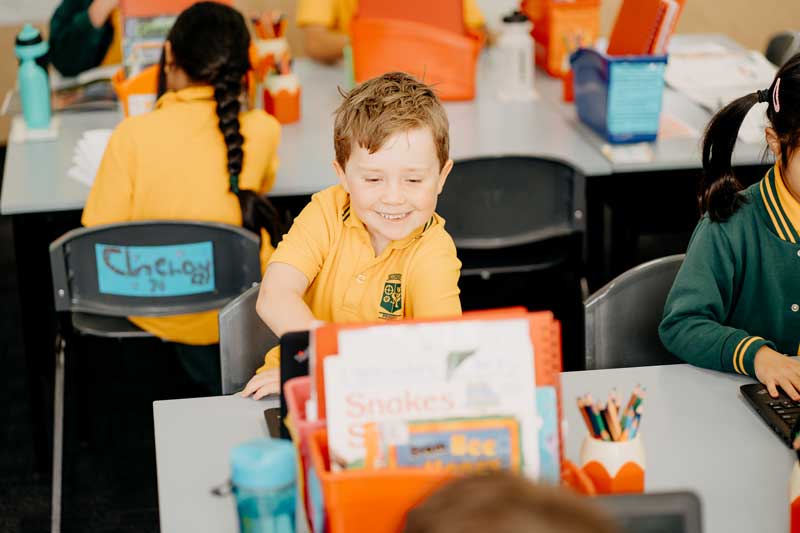
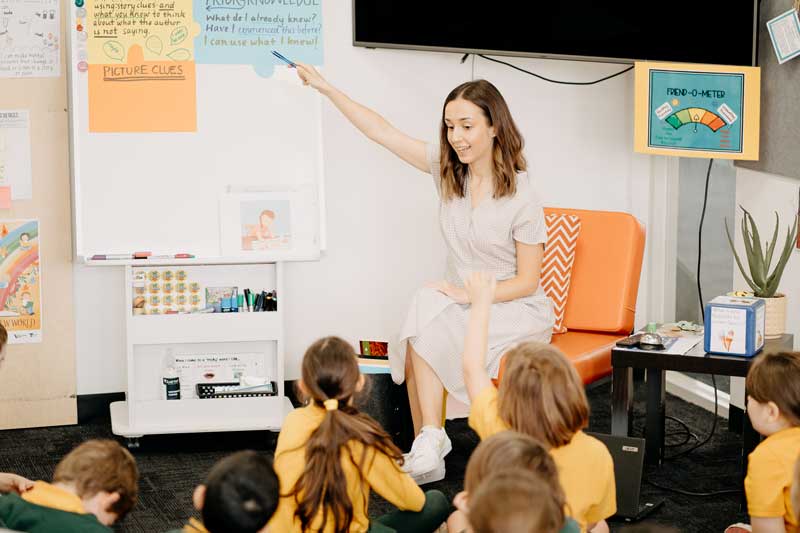
All students across the school are taught reading and writing through a consistent and evidence-based approach, supported by the Scoresby PS Instructional Model as well as our Literacy Scope and Sequence document.
These documents promote the use of High Impact Teaching Strategies(HITS), and endorsed by the Department of Education & Training. Strategies, such as supporting students to set challenging but achievable learning goals, the provision of explicit and differentiated teaching, along with effective questioning and feedback, enable the development of independent and self-motivated learners.
A gradual release of responsibility from teacher to student (“I do, We do, You do”) takes place through a structured sequence of interrelated stages and scaffolded activities. This approach equips students with the necessary skills to become confident, innovative and independent readers, writers, speakers and listeners.
The delivery of a differentiated literacy program by our teachers is informed by ongoing student assessment data and programming in line with the Victorian Curriculum. Literacy assessment of student learning is derived through a range of strategies such as teacher observations and questioning, student led conferences, work samples and formalised assessment pieces.
‘We can’t learn to swim without swimming, to write without writing, to sing without singing, or to read without reading.’
Reader’s Workshop is a framework for reading instruction that provides children with authentic reading experiences that focus on the strengths and needs of each individual child. The basic philosophy behind the Reader’s Workshop approach is to allow children to spend an extended amount of time reading authentic (self choice) texts that interest them on a daily basis, and to provide opportunities to talk about literature and to develop a life-long interest and passion in reading.
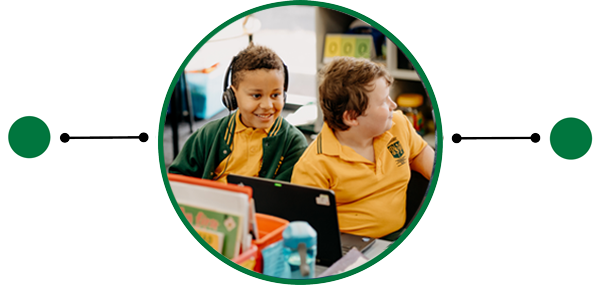
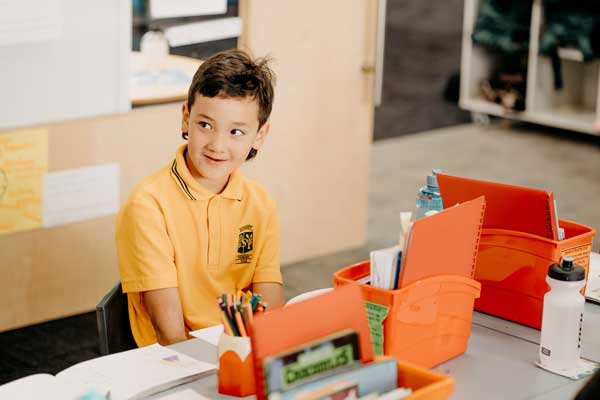
Here at Scoresby Primary School we acknowledge that writing is a complex process. As of 2022 Scoresby Primary School will be following the 6+ 1 Traits of writing by Ruth Culham.
This approach provides a common language throughout the school when teaching and learning about writing, and helps students break down the task and understand it better. The teaching of writing is broken down into the 6+1 Traits of Writing Voice, Organisation, Ideas, Conventions, Expanding Vocabulary, Sentence Fluency and Presentation.
As well as learning about different genres, students are also provided with the opportunity for free choice writing on a regular basis.



At Scoresby PS we provide many formal and informal ways for students to develop their oral language across all areas of the curriculum.
Starting from Prep, students are introduced to ‘Turn and talk’, a strategy that is used across the school to model and practise discussion skills. Students are taught explicitly about the importance of displaying positive body language when speaking and listening, as well as how to change their voice to suit the occasion. Students participate in formal speaking and listening tasks during which they receive peer and teacher feedback about their skills. This helps students develop an understanding of their strengths in these areas as well as to develop their future goals.
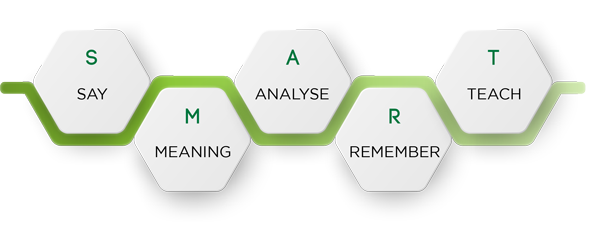
In 2021 Scoresby Primary School implemented a new spelling approach and trained all staff in SMART Spelling.
We teach in patterns as much as possible, so teachers choose a range of words (from simple to complex) from a suggested list. Students are then guided to choose from that list, to meet the differeerent needs. Teachers use their strong professional knowledge to give meaningful feedback to students about their spelling in writing, teaching at the point of need. Spelling rules are taught in the context of words in a way that builds on learning from prior years.

Website Designed and Developed by On Point Digital Solutions